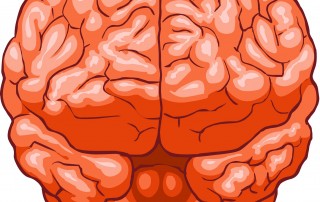Read Part 1 here Keep in mind that your brain’s task is to survive the moment, not the long-term. Without fail, the automatic behaviors that our brain engages in are accomplishing this task. However, due to its lack of perspective, the brain does not have the ability to coordinate momentary survival with long-term survival. So when your brain is acting, thinking, and feeling on your behalf, what does it think is happening? When we experience automatic behavioral responses, what is the brain trying to tell us? Think of the following example. The next time you feel an itch on your skin (which will be fairly soon, given that I have now invited you to think about it), try to physically look at the area of your skin that is itchy but DO NOT ITCH IT! Just look at the itchy place. If you can’t physically see it, try to visualize it in your mind as vividly as possible. You may even want to visualize yourself itching it. I can almost guarantee that devoid of any foreign substance interference, if the itch is generated by your brain, looking at it alone will be sufficient intervention to remove it. Give it a […]
Tags
add
adhd
anger
anxiety
attachment
brain
choices
conditioning
coping
counselling
counsellor
decisions
depression
development
emotion
fear
Gabor MAte
grief
happy
healthy
humor
insight
instincts
learning
mental health
mystery
neural networks
neuroscience
pain
parenting
problems
problem solving
protection
protective
psychology
research
sad
safety
science
survival
therapist
therapy
trauma
understanding
validation




Recent Comments